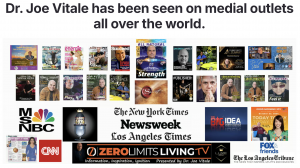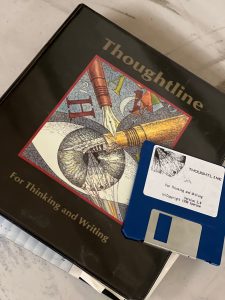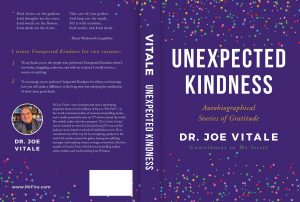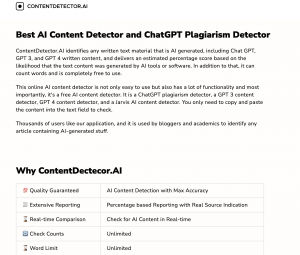Tag: ChatGPT
Why French Bulldogs Smirk at Chuck Norris Jokes
I asked ChatGPT to write this month’s blog post.
Here are 20 one-liners about French Bulldogs in the style of Chuck Norris jokes:
- French Bulldogs don’t bark—other dogs just instinctively apologize.
- When a French Bulldog gives you the look, even your WiFi signal gets stronger.
- A French Bulldog once stared at a treat for so long, it developed self-doubt.
- French Bulldogs don’t walk; they glide on a cushion of pure confidence.
- When a French Bulldog snores, tectonic plates shift.
- The Eiffel Tower wasn’t built—it was fetched by a French Bulldog.
- French Bulldogs don’t beg for food; they merely remind you of your responsibilities.
- A French Bulldog once refused to move, and the world adjusted accordingly.
- When a French Bulldog sits on your lap, congratulations—you no longer own your legs.
- A French Bulldog’s wrinkles hold ancient secrets mankind isn’t ready for.
- The only reason gravity exists is to keep French Bulldogs from floating off in smugness.
- A French Bulldog once won a staring contest against a statue… and the statue blinked.
- French Bulldogs don’t need leashes; they allow you to feel useful by holding one.
- A French Bulldog’s snore is the white noise the universe was built upon.
- French Bulldogs don’t shed; their fur just politely relocates itself to your clothes.
- When a French Bulldog naps, time pauses out of respect.
- French Bulldogs don’t chase their tails—they simply contemplate them philosophically.
- If a French Bulldog refuses to move, it’s now a permanent fixture in your home.
- The Mona Lisa’s real smile? She just saw a French Bulldog waddle by.
- A French Bulldog doesn’t drool—it blesses the world with liquid charm.
Expect Miracles.
Ao Akua,
Dr Joe Vitale
Beware Science
I love and hate science.
I love that science continues to try to understand the world at large, and I hate that it is always back pedaling.
I asked ChatGPT how science gets away with this, and to offer examples of when it works, and when it doesn’t.
Here’s the report…
Science: Correcting Itself One Study at a Time
Science is an ever-evolving field. Through rigorous research and experimentation, scientists uncover new insights about the world. However, not every study stands the test of time.
Some findings are later proven wrong, while others continue to hold up under scrutiny.
In this post, we’ll look at five famous scientific studies that turned out to be incorrect, balanced by five that, so far, remain reliable.
5 Studies That Turned Out to Be Incorrect
1. The “Fat is Bad” Study (1950s–1970s)
For decades, fat was labeled as the ultimate dietary villain. A series of studies, led by researcher Ancel Keys, suggested that dietary fat, particularly saturated fat, caused heart disease. This led to a low-fat craze that dominated the food industry. However, recent research has shown that the relationship between fat intake and heart disease is more complex. Healthy fats, like those found in avocados and nuts, are actually beneficial, and sugar and processed carbs may be more harmful than previously thought.
2. Stanford Prison Experiment (1971)
Psychologist Philip Zimbardo’s famous Stanford Prison Experiment suggested that people would quickly conform to abusive behaviors when given authority. The study has been widely criticized for ethical issues, poor methodology, and researcher bias. Participants were often encouraged to act out extreme behaviors, and the results have been difficult to replicate. Today, it’s considered an example of flawed research.
3. Cold Fusion (1989)
In 1989, scientists Stanley Pons and Martin Fleischmann claimed to have achieved cold fusion, a process that would produce unlimited, clean energy at room temperature. The announcement was met with excitement, but soon other researchers failed to replicate the findings. Cold fusion has since been debunked, and it remains a controversial topic.
4. Vaccines Cause Autism (1998)
One of the most damaging incorrect studies was the 1998 paper by Andrew Wakefield that falsely linked the MMR vaccine (measles, mumps, and rubella) to autism. The study was later retracted due to unethical practices and poor methodology, and numerous studies since have found no connection between vaccines and autism. However, the initial report sparked a dangerous anti-vaccine movement.
5. Polygraph Tests as Lie Detectors (1920s–Present)
The polygraph, or lie detector test, has been used for decades to determine whether someone is telling the truth based on physiological responses like heart rate and sweating. However, numerous studies have shown that polygraph tests are unreliable. Stress, fear, and anxiety can produce false positives, and some people can lie without showing physical signs. As a result, polygraphs are not admissible in many courts.
5 Studies That Have Stood the Test of Time (For Now)
1. Theory of General Relativity (1915)
Albert Einstein’s theory of general relativity fundamentally changed our understanding of gravity. It predicts how massive objects like planets and stars warp space-time. This theory has passed many tests over the past century, including the recent detection of gravitational waves in 2015, further proving its accuracy.
2. Double Helix Structure of DNA (1953)
The discovery of the double helix structure of DNA by James Watson and Francis Crick remains one of the most significant breakthroughs in biology. Since its discovery, the structure of DNA has been the foundation for numerous advances in genetics, medicine, and forensic science, and it continues to guide research in the field.
3. Evolution by Natural Selection (1859)
Charles Darwin’s theory of evolution by natural selection explains how species change over time due to environmental pressures. Over 150 years later, the theory remains one of the cornerstones of modern biology. It has been supported by countless studies in fields ranging from paleontology to genetics.
4. Germ Theory of Disease (19th Century)
Proposed by Louis Pasteur and Robert Koch, the germ theory of disease revolutionized medicine. It states that microorganisms are responsible for many diseases. This theory has led to the development of vaccines, antibiotics, and modern hygiene practices, saving countless lives. To this day, it remains a fundamental principle of medical science.
5. Plate Tectonics (1960s)
The theory of plate tectonics explains how the Earth’s outer shell is divided into several plates that move over the mantle, causing earthquakes, volcanic activity, and the formation of mountains. This theory has been supported by evidence from seismology, geology, and oceanography, and it remains the best explanation for many geological processes.
Conclusion
Science is a self-correcting process.
While some studies that were once accepted have been disproven, others have withstood decades of scrutiny and continue to be the foundation of our understanding.
What’s important is that science remains open to new evidence and willing to adapt. Through this process, our knowledge grows stronger and more accurate over time.
All of the above was from ChatGPT.
As I hope you know by now, ChatGPT is known to fabricate case studies, so take the above with a grain of salt.
Again, I love science, but I’m also aware that whatever it reports as fact today can be negated as incorrect tomorrow.
Expect Miracles.
Ao Akua,
Dr Joe
Seneca Meets Epicurus
As you know – if you’ve been following this blog – I’ve been testing ChatGPT. I’m not overly impressed yet but it did help me create a cool e-book that I put on Amazon.
Basically I had the AI program write a dialogue between Seneca and Epicurus, two philosophers who never met in real life, in response to my sincere questions.
I thought the results were impressive. They were surprising, in-depth, useful, and seemed authentic.
You can find the e-book on Amazon at https://www.amazon.com/Pursuit-Tranquility-Secret-Dialogues-Epicurus-ebook/dp/B0C41253F8/
Enjoy.
Ao Akua,
Joe
PS – I wrote this blog post, not AI.
ChatGPT Mea Culpa: In-Depth Analysis
Thoughtline was an early “ChatGPT” AI program back in the 1990s.
It was based on the DOS system of the time and came on a disk.
I wrote about it in my book, Hypnotic Writing, because it was the first product I sold as a copywriter and direct marketer that actually made money for me.
I used it to help me think through articles, book chapters and even outlines for speaking gigs.
It was fun, stimulating, practical, and surreal.
It often felt almost human, like a real person was behind the system.
Of course, it also often felt clumsy, limited, and somewhat predictable.
But that was in the last century.
What about today?
I wanted to know how the current AI (Artificial Intelligence) programs are working to help us in 2023.
I wrote about ChatGPT last month.
I wasn’t impressed.
But I tested ChatGPT again.
I asked for a book recommendation.
I love reading about publicity stunts and outrageous publicists, especially those who came out of old Hollywood.
I have a collection of books by and about these flamboyant people, and of course I wrote a book on one of them (P.T. Barnum), but I wondered if there was something I might have missed.
So I asked ChatGPT for suggestions.
ChatGPT (3.5) surprised me.
It gave me several titles including, “Flack: True Tales from the Hollywood Trenches” by Dylan Landis.
I never heard of it.
I got excited.
I wanted to read it.
I looked on Amazon.
Nothing.
I looked on eBay.
Nothing.
I searched my favorite rare book sites.
Nothing.
I prompted for more info.
ChatGPT stood its ground: “The book was published in 2018.”
I took that added information and dug deeper.
Still nothing.
I’m a book collector.
I can find rare books.
Why couldn’t I find this one?
I prompted ChatGPT yet again.
It apologized.
“I apologize for the confusion earlier. Upon double checking, I realized that I made an error in my previous response.”
The book doesn’t exist.
It doesn’t exist!?
Why would the system offer a book that doesn’t exist?
Use ChatGPT for fun but beware of using it for facts.
I posted an abbreviated version of this blog on my FB profile. One person said they were using ChatGPT to research legal cases and discovered many of the cases weren’t real.
Enjoy ChatGPT but don’t trust it.
For the record, when the fourth version of ChatGPT showed up last month, I tested it, too.
I was told it was far more accurate.
I was told to be clear in my prompts so the AI system could be clear in its answers.
I Tested 4.0
I asked for a few nonfiction books about famous songs and how they were written, in particular the classic song, “Smile.”
I knew Charlie Chaplin wrote the melody for a film of his called Modern Times. Decades later the lyrics were added by John Turner and Geoffrey Parsons.
The result was the classic song everyone knows and the legends sing. (Even I recorded it on one of my singer-songwriter albums.)
But I wanted to know more.
Was there a history to the song?
Was there a book about it?
So I asked the wizard for a suggestion.
ChatGPT4 replied –
“Smile: The Story of Charlie Chaplin’s Lost Classic” by David Gritten.
I went bananas.
THAT’S the book I wanted to read!
It sounded perfect.
So I went on my book search and – you guessed it – it doesn’t exist.
ChaptGPT4 made it up.
When I pushed back, the system again said –
“I apologize for the confusion. It appears there isn’t a book titled that.”
SIGH.
Again, don’t trust ChaptGPT, even the latest version is prone to writing fiction.
And since it seems like it wants to write creative material, I thought I would test it on writing a song.
So I went to ChatGPT-4 and prompted with this:
Within seconds it started typing the following lyrics:
(Verse 1) Oh, Cabi, my French Bulldog, so fine, A prosperity pup, always ready to shine, With a wag and a woof, you bring us good cheer, We’re lucky you’re here, so we’ll never fear!
(Chorus) Cabi, the Prosperity Dog, our pride and joy, With your wiggly tail and your cute little ploys, You light up our life, chase away all the fog, Oh, Cabi, our Prosperity Dog!
(Verse 2) Your big bat ears, standing tall like a crown, You bring us good fortune, in city or town, From Paris to London, or Rome, we will roam, With Cabi, our Prosperity Dog, we’re never alone!
(Chorus) Cabi, the Prosperity Dog, our pride and joy, With your wiggly tail and your cute little ploys, You light up our life, chase away all the fog, Oh, Cabi, our Prosperity Dog!
(Bridge) You snort and you snuffle, but we don’t mind, You’re loving and loyal, so tender and kind, With every step you take, and each little paw, You’re spreading good vibes, like a magical law!
(Verse 3) In sunshine or rain, you’ve got our back, You’re our little charm, our own zodiac, With your squishy-faced grin, and your eyes full of glee, Oh, Cabi, our Prosperity Dog, you’ve set us free!
(Chorus) Cabi, the Prosperity Dog, our pride and joy, With your wiggly tail and your cute little ploys, You light up our life, chase away all the fog, Oh, Cabi, our Prosperity Dog!
(Outro) So here’s to Cabi, our Prosperity pup, With you by our side, we’ll never give up, Together we’ll conquer, and prosper with glee, Oh, Cabi, our French Bulldog, forever we’ll be!
What do you think?
Is it good?
Well, it’s a song.
It’s not a great song.
It needs tweaked and polished.
But it’s actually a workable song, or at least the beginning of one.
So ChaptGPT wins points.
But.
Don’t turn off your brain.
Don’t surrender your awareness and discernment.
Don’t drop your common sense.
The system is probably great for brainstorming projects, but if you allow it to do your thinking, creating and writing, you may find yourself with passive writing, mediocre products, inaccurate info, and potentially in court.
Have fun with it.
After all, not having a book about the song Smile means I could potentially write one.
And the beginning of a song about our dog Cabi gives me something to work with.
So I can thank the system for those ideas.
But let’s test the system one more time.
Some people claim ChatGPT can write sales letters, ads, and other marketing materials.
Well, can it?
I again went to ChatGPT-4 and made a clear request:
Write a direct response sales letter that persuades people to buy my latest book Unexpected Kindness at Amazon right now.
Subject: Open This Now to Discover the Secret of Unexpected Kindness in Your Life
Dear [Name],
I hope this letter finds you in the best of health and spirits. Today, I want to share with you something extraordinary, something that has the power to change your life for the better. I’m talking about my latest book, Unexpected Kindness, now available on Amazon. And the best part? You can get your hands on it right now, at this very moment!
Imagine a world where each day is filled with little surprises that brighten your life and fill your heart with warmth. A world where kind gestures and words of encouragement come your way without warning. Sounds like a dream, right? But what if I told you that this dream can become a reality, starting today?
Unexpected Kindness is more than just a book; it’s a journey towards a life filled with compassion, love, and positivity. And it all begins with one simple click.
Here’s what you can expect from this groundbreaking book:
- Inspiring real-life stories of kindness and generosity that have transformed lives
- Powerful insights on how to harness the potential of kindness in everyday situations
- A step-by-step guide to cultivating a kinder, more empathetic, and happier mindset
- Exclusive tips on how to create a ripple effect of kindness in your community
I guarantee that once you start reading Unexpected Kindness, you’ll find yourself looking at the world around you with a renewed sense of wonder and gratitude. You’ll begin to notice acts of kindness everywhere, and even better, you’ll be inspired to practice them yourself.
Now, I understand that you might be skeptical. After all, there are plenty of books out there, each promising to change your life. So, what makes Unexpected Kindness different?
It’s simple: this book is backed by years of research and countless testimonials from people whose lives have been transformed by its message. Not only that, but it also provides actionable, easy-to-follow steps that you can start implementing in your life immediately.
But don’t just take my word for it; here’s what some of our readers have to say:
“I was going through a rough patch in my life when I stumbled upon Unexpected Kindness. It’s not an exaggeration to say that this book changed my life. I’ve become more empathetic, more understanding, and happier. I can’t recommend it enough!” – Karen S.
“Unexpected Kindness has opened my eyes to the power of kindness and how it can truly make a difference in our lives. Since reading this book, I’ve been practicing kindness every day, and I’ve noticed a significant improvement in my relationships and overall well-being.” – Michael T.
So, what are you waiting for? Click the link below to get your copy of Unexpected Kindness from Amazon and start your journey to a happier, kinder, and more fulfilling life.
Remember, every act of kindness, no matter how small, has the potential to create a massive impact on someone’s life. And it all begins with you.
Don’t miss out on this opportunity to change your life and the lives of those around you. Order your copy of Unexpected Kindness today and embrace the power of kindness!
Wishing you a lifetime of happiness and kindness,
[Your Name]
P.S. Time is of the essence! Order your copy of Unexpected Kindness now and start experiencing the transformative power of kindness in your life. Don’t wait – act now!
What do you think?
Is that a good sales letter?
Are you sure?
One of the problems with using ChatGPT is knowing whether what it writes for you is actually any good or not.
How would you know if you don’t have the experience to recognize excellence or mediocrity?
Again, what do you think of the sales letter?
Here’s what I think:
It’s a very good letter.
It has all the key elements of a persuasive letter.
But it’s not a great letter.
It has lies, half truths, and misleading content.
There aren’t any step by step guidelines in the book.
Those testimonials in the letter are all fictional.
Like the song for Cabi, the letter is a good start. You can take it and work with it. It might save you time and trouble by giving you material to review rather than a blank page to stare at.
But don’t give it your mind.
Let’s do one more test.
I created a mental time travel program last year that helps people travel to the past to sit at the feet of some legend of long ago.
They can then ask questions, gain insights, and more.
I wondered what Seneca and Epicurus – representing two rival schools of thought – would discuss if they ever met.
Being a fictional scene, and AI seems to shine writing fiction, I thought this might yield interesting results.
So I went to ChatGPT-4 and prompted:
Write a thought provoking dialogue between Seneca of the Stoics and Epicurus of the Epicureans illustrating their differences and similarities.
Seneca: Greetings, Epicurus! It’s a pleasure to meet with you to discuss our philosophies. I hope we can learn from each other and better understand our own ideas in the process.
Epicurus: Greetings, Seneca. I am also pleased to engage in this exchange of ideas. I believe that our different perspectives can contribute to a richer understanding of the world and ourselves.
Seneca: Indeed. Let us begin. As a Stoic, I believe that the ultimate goal in life is to achieve a state of tranquility and peace by cultivating virtue, wisdom, and self-discipline. This means that we must learn to control our emotions and desires, and accept the natural order of things.
Epicurus: I can appreciate that viewpoint. However, as an Epicurean, I believe that the pursuit of pleasure is the highest good. I do not mean indulgence in hedonistic excess, but rather the enjoyment of simple, moderate pleasures that lead to a state of ataraxia, or freedom from pain and mental disturbance.
Seneca: It is interesting that we both value tranquility, albeit through different means. Our differences lie in the methods we employ to reach this state. I would argue that by focusing on virtue and reason, we are better equipped to handle the inevitable suffering that life brings.
Epicurus: That’s a valid point, Seneca. But I would counter that by emphasizing pleasure and the avoidance of pain, we can cultivate a life of happiness without sacrificing wisdom or virtue. In fact, I believe that through the exercise of prudence, we can maximize our pleasure while minimizing pain.
Seneca: I understand your argument, but one concern I have is that the pursuit of pleasure can lead to a dependence on external circumstances. A Stoic aims to be indifferent to external events, as they are beyond our control. By relying on internal virtues, we can maintain our tranquility regardless of our surroundings.
Epicurus: I see your concern, Seneca. However, the Epicurean pursuit of pleasure is not dependent on external circumstances alone. We seek pleasure in friendship, knowledge, and contemplation, which are not solely subject to the whims of fate. Additionally, we advocate for moderation in all things, which helps prevent us from becoming slaves to our desires.
Seneca: I am glad to hear that we share a common appreciation for moderation and the importance of friendship. We both agree that knowledge and contemplation contribute to a meaningful life.
Epicurus: Yes, it seems that despite our differences, there is much that unites our philosophies. We both value inner peace and the pursuit of wisdom as means to achieve a fulfilling life.
Seneca: Indeed, it appears that our disagreements stem from the nuances of our beliefs, rather than our core values. It is in these discussions that we can refine and strengthen our own convictions, as well as gain a deeper understanding of alternate perspectives.
Epicurus: I wholeheartedly agree, Seneca. May we continue to engage in such dialogues, enriching both our own lives and those of others.
Seneca: Agreed, Epicurus. Let us continue to seek wisdom and understanding, and may our philosophies inspire others to do the same. Farewell, my friend.
Epicurus: Farewell, Seneca. Until we meet again.
Well, what do you think?
I’ve studied both Seneca and Epicurus.
I’ve collected and read their ancient writings.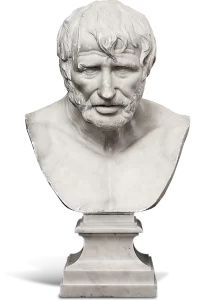
I find the fictional dialogue above illuminating and accurate.
But since I’m not an expert on Stoicism or Epicurism, I can’t say if the dialogue is 100% accurate or not.
Still, it’s a good beginning to a possible book, play, or movie.
If I wanted to, I could develop the dialogue (with AI’s help and my discernment) into a product.
With that in mind, I give ChaptGPT more points.
It impressed me and gave me something I didn’t have: a good start to my idea.
I’d be wary of just taking what it writes and running with it. It could be considered plagirism; after all, the program is pulling from existing content and allegedly creating new content from it.
But is it?
Turns out plagiarism is a potential issue with anything ChaptGPT “creates.”
There’s a program online you can use to check content.
You can check it out here.
Bottom line for me:
Use ChaptGPT for fun, as a kick starting device, for first drafts, but do not turn over your ability to reason, rewrite, or reject what it gives to you.
You’re smarter than it.
Right?
(Note: I wrote this post not ChatGPT.)
Expect Miracles.
Ao Akua,
ChatGPT Reveals Money Attraction Steps
I didn’t write the bulk of this blog post.
I asked ChatGPT to tell me how to attract money.
Before I show you what it “wrote,” let ChatGPT tell you what it is:
ChatGPT is a computer program that can talk to people like a human. It can understand what you say and respond to you in a helpful way. It has been trained on lots of information from the internet and can answer questions, provide information, and even make small talk. It’s like having a really smart friend you can talk to anytime!
I’m not so sure I agree with that, but since ChatGPT is the raging trend right now, let’s play along.
I asked it to tell me how to attract money.
Here’s what it wrote:
Attracting money involves a combination of mindset, action, and opportunity. Here are some tips to help you attract money:
- Develop a positive money mindset: The way you think about money can impact your ability to attract it. If you have negative thoughts and beliefs about money, it can be difficult to attract more of it. Try to focus on abundance and believe that there is plenty of money to go around.
- Take action: Attracting money isn’t just about thinking positively, it’s also about taking action. Consider ways to increase your income, whether it’s through a side hustle, a new job, or investing. Take steps to improve your financial situation.
- Be open to opportunities: Opportunities to make money can come from unexpected places. Be open to new opportunities and don’t be afraid to take risks.
- Manage your money wisely: Attracting money isn’t just about making more of it, it’s also about managing it wisely. Make a budget, save money, and invest in yourself and your future.
- Give back: Giving back can be a powerful way to attract more money into your life. When you give, you create a positive energy that can attract more abundance into your life.
Remember that attracting money takes time and effort. It’s not a quick fix, but by taking the right steps and developing a positive mindset, you can increase your chances of attracting more money into your life.

